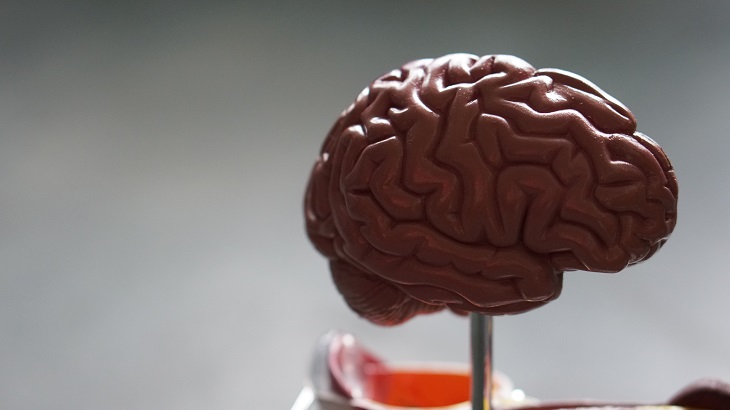Being overweight or obese can be dangerous for a variety of different reasons. When many people focus on losing weight, a big part of their motivation comes from cosmetic reasons – but many people aren’t privy to the real health risks of carrying around excess weight.
How does obesity affect the body?
On a cellular level, the process of gaining weight occurs when new fat cells are formed, and along with old fat cells, begin to grow. Every person has a set number of fat cells; when weight loss occurs, those fat cells begin to shrink, not disappear. This could be why some people are more likely to be overweight or obese than others.
Obesity puts a strain on every system of the body. To put it into perspective, think about your body as a vehicle. When the trunk is completely empty, the car will run smoother and faster, and waste less gas. As the trunk begins to fill up, its performance continues to decrease. In terms of the body, as weight continues to build upon the frame, the body’s systems begin to lose their ability to do what they’re supposed to do.

How do you know if you have excess body fat?
Aside from visually seeing the weight on your body, knowing how much fat you have can be tricky. The Body Mass Index (BMI) has been used as an indicator since the 1800s, but recent research has found that it has no place in determining overall levels of health because of the factors it doesn’t take into consideration.
The best way to tell if you have excess fat but aren’t sure of it is to check your overall levels of health. If you get winded going upstairs or can’t do a single push-up, it could mean that your body isn’t carrying around as much muscle as you thought.
Risks associated with excess body fat
There are some serious health risks associated with being overweight. In comparison to those with healthy body weights, those who are obese have a higher risk for developing the following health conditions:
- Type 2 diabetes
- Heart disease
- Liver disease
- Kidney disease
- High cholesterol
- Stroke
- Osteoarthritis
- Breathing problems and sleep issues
- Cancer
- Mental illness
- Chronic pain and inflammation
- Early death
This list is not exhaustive, but it does paint a grim picture about how that excess body weight can be detrimental to one’s overall levels of a health.
Body systems affected by being overweight
When there is excess weight on the body, it doesn’t typically affect only one system, but rather the majority of them. The location of the highest levels of fat will be the deciding factor of what system is affected and how badly. Visceral fat is the type of fat that sits around the organs, and when it is found in high amounts, it can damage organ function.
Respiratory system
The respiratory system is the network of organs and tissues that help with breathing. When the body has too much fat, it can cause issues with this system by putting compression on the chest cavity, particularly the lungs and diaphragm. This leads to pulmonary damage. Excess fat can also decrease how well the respiratory functions by reducing muscle strength in the chest. The buildup of fat on the body can lead to asthma, airway hyperresponsiveness, and increased inflammation.
Digestive system
Obesity can lead to a variety of different digestive issues, such as gastroesophageal reflux disease, erosive esophagitis, gallstones, pancreatitis, and digestive organ cancers.
Reproductive system
Studies have shown that women who are overweight or obese have a harder time becoming pregnant due to anovulation and menstrual dysfunction. They can also experience infertility at higher rates than those who have a healthy amount of fat on their body, as well as a heightened risk for miscarriage and pregnancy complications.
Endocrine system
Obesity affects the endocrine system by altering the way the hypothalamic-pituitary hormone axes functions. This leads to problems with hormone release, which can cause hypothyroidism, hypogonadism, growth hormone deficiency, and Cushing’s Disease.
Cardiovascular system
Since those with too much excess weight require more blood to circulate oxygen throughout the body, the cardiovascular system has to work extra hard. This leads to high blood pressure, which in turn significantly raises the risk of heart attack. It can also change the structure and function of the heart because of how hard it has to work to get the same tasks done, leading to heart failure.

Mental health
Being obese can lead to a variety of different mental health conditions such as depression, anxiety, low self-esteem, and eating disorders.
Liver
Being obese can also affect the liver because of buildup that can lead to inflammation and damage. When the liver can’t handle the input to output of fat, it begins to malfunction. This leads to fatty liver disease.
Kidneys
When the body holds excess weight, the kidneys need to work harder to filter out waste. This can lead to an over-productive kidney function. As time goes on, this extra work causes strain on the kidneys and can lead to kidney disease.
Musculoskeletal system
Being obese can cause limited function in the way the muscles perform, hindering mobility, postural and dynamic balance, and strength over time. It also puts unnecessary pressure on the joints, which can deplete cartilage levels, leading to a variety of arthritic conditions.
Immune system
Since obesity can cause an inflammatory response in the body, it can lead to an impairment in the immune function. This leads the body to become more susceptible to infections and an increased rate of mortality when battling serious respiratory infections such as H1N1.
Since being overweight or obese can negatively affect all bodily systems, it can be attributed to the onset of many different diseases. Losing weight can be tough, but it’s often a huge step in the right direction towards living healthily.
Featured image by mojzagrebinfo on Pixabay





























